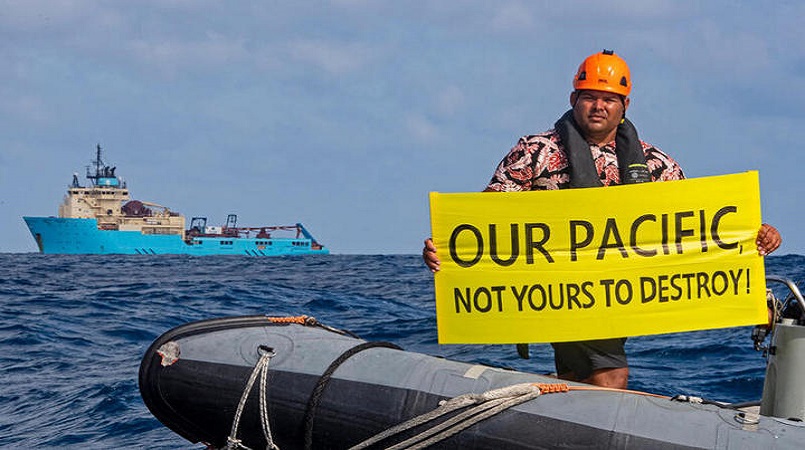
Hundreds of scientists, and coalitions of churches, environmentalists, and NGOs are calling for a ban on deep sea mining, following a political move that may open the gates for it to begin in the Pacific in two years.
This week, the fledgling deep sea mining sector got a green light for future mining in the Pacific by 2023, due to Nauru setting a "two year" rule in motion at the International Seabed Authority.
The Authority, tasked with regulating the seabed, confirmed Nauru triggered a clause that would allow mining to begin in two years within its Exclusive Economic Zone.
However, some fear the move could have opened the path for a 'domino-effect' and other countries could also open their doors to the controversial new industry.
A wide cross-section of Pacific organisations have called on Nauru to reconsider its decision, including the Pacific Council of Churches, the Pacific Islands Association of Non-governmental Organisations and the Pacific Network on Globalisation.
Pacific Network on Globalisation coordinator Maureen Penjueli said there were mounting concerns the industry could exploit the region.
"In the absence of clear governance mechanisms to deal with the trigger [of the clause at the International Seabed Authority, and] the recurring scientific concerns around impacts, we are really calling for an outright ban at this stage whilst we try and get [the] governance systems in order."
The civil society network said there were too many significant unknowns about how the new mining process could affect the surroundings and wider environment to allow it to proceed.
The Deep Sea Conservation Coalition, a coalition of environmental groups, called on governments to act now to stop an industry that many believe could have devastating environmental effects, for questionable economic gain.
The coalition's international legal advisor Duncan Currie said if Nauru is successful it could start a race to the bottom of the ocean with other countries.
"This is really of utmost importance. That's why we would love to see the New Zealand government engaging with the Australian government and Pacific islands governments in calling for a stop to this, and calling for a moratorium within two years."
The Deep Sea Conservation Coalition said Nauru's move went against scientific advice, which is that not enough is known about the environmental damage deep sea mining would cause for it to proceed at this stage.
In late June 350 marine scientists and policy experts from 44 countries published a statement calling for a pause to deep sea mining operations until "sufficient and robust scientific information has been obtained" for informed decisions about it to be made.
Bloomberg news last week reported the ambitions of one of the major mining companies - DeepGreen comes with "deep risks".
It said the company had pitched the mining as gentle ocean floor excavations that would provide minerals for electric car batteries, as well as large profits. However it reported the company's previous operations had created "political and financial leverage over its partners, who are dependent on its expertise", and will be on the hook to ensure it complies with international environmental rules.
The report said the area of ocean the company wanted to mine could be one of the most diverse and rich in biological life on the planet.
DeepGreen is now called The Metals Company after a merger. The organisation didn't respond to RNZs questions.
However, the chief executive and chairman of both DeepGreen and The Metals Company Gerard Barron earlier said the metals that would be mined are vital for the batteries needed for a zero carbon economy.
